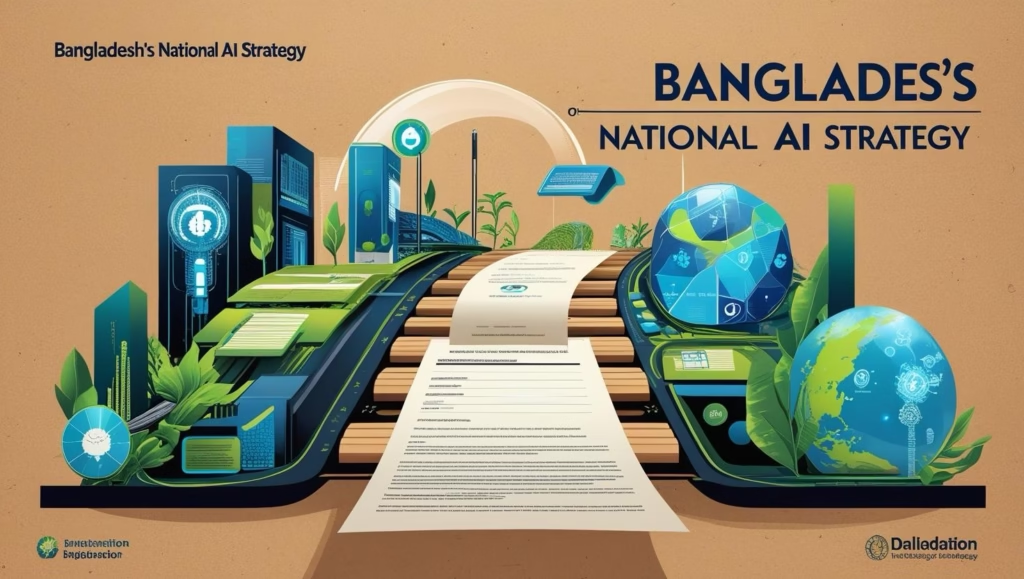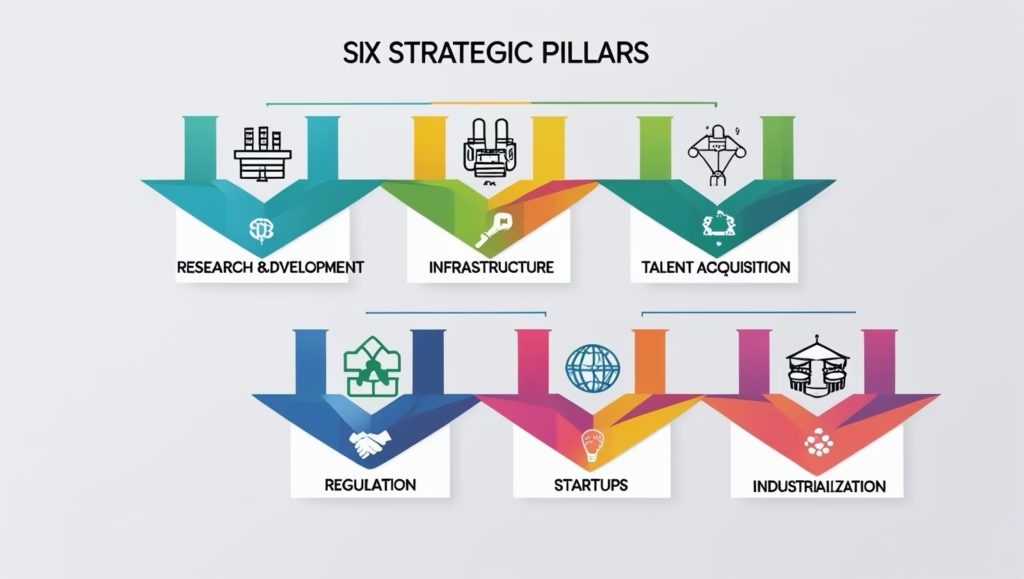Drafted in 2019 with the support of a2i, UNDP, and the Cabinet Division, Bangladesh’s National AI Strategy was built through months of research, dialogue, and vision.
Five years later, it remains unlaunched—this is my personal reflection on that journey, the delays, and what must happen next

The Journey We Began with Hope
In 2019, I received a formal purchase order to my company HyperTAG from a2i under the ICT Division, funded by UNDP in collaboration with the Cabinet Division, to lead a historic initiative: crafting Bangladesh’s first National Artificial Intelligence Strategy. What followed was an eight-month odyssey of research, dialogue, and design that I will carry with me for life.
Our aim was not just to prepare a paper, but to chart a national path toward the future—one where Bangladesh would not be a passive adopter of AI, but an active architect of its ethical, inclusive, and strategic implementation.
This wasn’t done in isolation. We conducted nationwide workshops with stakeholders from:
Government ministries and regulators Industry associations (RMG, fintech, agriculture, startups) Academia and research universities AI practitioners, developers, and data scientists Global advisors and development partners
I personally studied over 20 national AI strategies from countries as diverse as Singapore, the UK, India, Kenya, Canada, and the UAE—each with their own socio-economic DNA. I extracted not only the technical frameworks but the policy insights, budget mechanisms, legal enablers, and workforce strategies that underpinned their AI ecosystems.
Over these months, I spoke with leading experts across Bangladesh and internationally, gathering inputs on ethics, data governance, public sector innovation, and startup enablement. We ensured that this wasn’t just a government plan—it was a collaborative national blueprint.
And then… the strategy went quiet.
A Strategy Still Waiting to Be Activated
Despite the extensive groundwork, the strategy was never formally launched or implemented under the Awami League government. It remained a draft. A visionary document sidelined by political distractions, bureaucratic inertia, and a lack of executive ownership.
Today, in 2025, with a student-led political shift and Prof. Younus taking initiative, there’s renewed dialogue around AI. But the same strategy that could have positioned Bangladesh ahead is now five years behind.
What Must Happen Next: The Way Forward
Enough discussion. It’s time for execution. Here’s how we move from stagnation to action:
1. Formal Adoption and Public Launch
The government must formally adopt the 2019 National AI Strategy, with minimal revisions, as the foundational policy document. This includes publishing it with Cabinet endorsement and issuing an executive order for implementation oversight.
2. Formation of a National AI Commission
Establish an autonomous National AI Commission, comprising members from government, academia, industry, and civil society. Empower it with legal authority to coordinate cross-ministerial efforts and budget allocations.

3. Fund and Operationalize the 6 Pillars
The original strategy outlined six pillars—R&D, infrastructure, workforce, ethics, startup ecosystem, and industrialization. Each needs:
Dedicated annual budget Clear KPIs and deliverables Ministry-specific accountability
4. Activate University–Industry–Government Collaboration
Launch AI research grants tied to real-world problems Set up AI Innovation Labs in public universities with joint industry supervision Facilitate internships and upskilling for students, especially outside Dhaka
5. Data Readiness and Infrastructure
Enforce open government data policies for non-sensitive datasets Set up AI-ready infrastructure: high-compute environments, cloud access, model repositories Integrate 5G, national data centers, and LoRa/IoT expansion in rural sectors
6. Start with 3 Flagship Pilots by 2026
To demonstrate success, pick three domains and execute:
AI for Agriculture (predictive yield, disease detection) AI for Health (remote diagnostics, wearable data) AI for Education (adaptive learning platforms for SSC students)
What Keeps Me Hopeful
Despite years of delay, I remain hopeful. Not because of what we’ve done, but because of what we can still do. We have:
A vast, youthful population ready to be reskilled A resilient tech ecosystem that survived underfunding International partners still interested in Bangladesh’s digital story A completed strategy—ready, not speculative
The bones are in place. The soul is willing. What’s missing is execution.
A Personal Note
This document was never meant to be shelved. It was meant to transform a generation. To build a Bangladesh where AI uplifts rural farmers, supports healthcare workers, empowers students, and inspires innovation—not just in Dhaka, but in every district.
Let us stop using AI as a panel discussion term and start using it as a national accelerator of justice, efficiency, and inclusion.
Bangladesh is ready. We just need to start.
Md Shofiul Alam is a Bangladeshi tech entrepreneur and policy strategist with a deep interest in Cognitive AI and ethical technology. He authored Bangladesh’s National AI Strategy (2019) and leads Desh AI and HyperTAG Solutions Ltd

